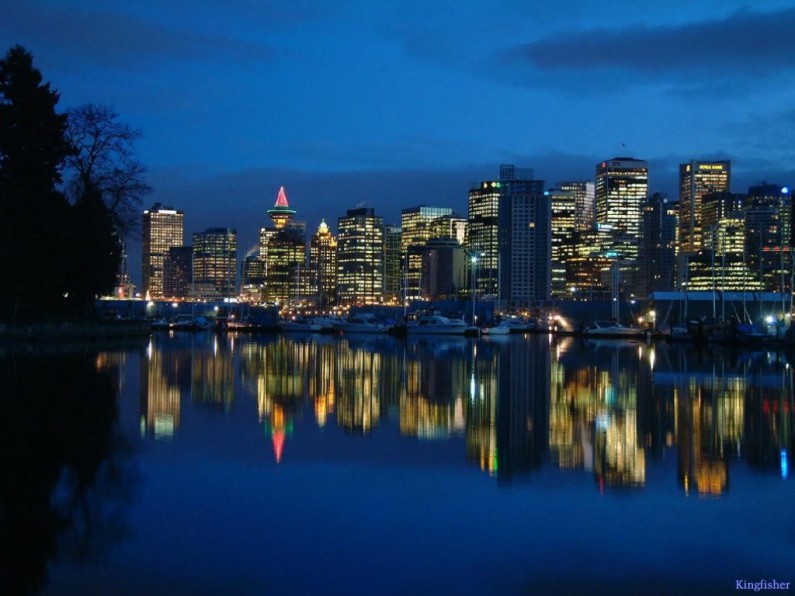
VIA Spirit Science and Metaphysics
Thanks to FollowGreenLiving and Inhabitat|
According to a recent announcement made at the ICLEI World Conference 2015 in Seoul, South Korea, Vancouver has pledged to run on 100 percent renewable energy. This applies not only for their electricity, but also for their heating, cooling, and housing as well.
Bordered by the Coast Mountain Range and the Pacific Ocean, Vancouver is a coastal harbour city in British Columbia, Canada, and recognized as one of the world’s most desirable cities. It now joins a list of 50 cities that pledge to be 100% sustainable and renewable.
In fact, in 2007, the city of Vancouver received an award for being the greenest city among cities with a population of at least 100,000 inhabitants.
The motion was initially put forward by Vancouver Mayor Gregor Robertson, pictured above. In a statement the Mayor said:
“Cities around the world must show continued leadership to meet the urgent challenge of climate change, and the most impactful change we can make is a shift toward 100 percent of our energy being derived from renewable sources. The future of Vancouver’s economy and livability will depend on our ability to confront and adapt to climate change, and moving toward renewable energy is another way that Vancouver is working to become the greenest city in the world.”
Now, what is it about Vancouver that makes it so green? Let’s take a look at the measures they are taking to make this the greenest city in the world.
Green Economy

Vancouver already has a highly diversified home-grown green economy. Their long-term goal is to secure Vancouver’s international reputation as a mecca of green enterprise. Their target is to double the number of green jobs in the city by 2020. How cool is it that one of the most beautiful cities in the world is making green jobs a priority!?
Green Climate

Unlike many growing cities, greenhouse gas emissions in Vancouver are on the decline, currently at the same level as they were in 1990. Their 2020 target is to reduce community-based greenhouse gas emissions by 33% from 2007 levels and finally eliminate dependence on fossil fuels. The air actually gets cleaner as the population continues to grow.
Green Buildings

Vancouver has the greenest new neighbourhood in North America-Southeast False Creek. Their 2020 targets are to require all buildings constructed from 2020 onward to be carbon neutral in operations and to reduce energy use and greenhouse gas emissions in existing buildings by 20% over 2007 levels.
Green Transportation

To be the greenest city, they need to make walking, cycling and transit the preferred transportation options. Their first 2020 target is to have over 50% of trips take place by walking, cycling and public transit. Their second is to reduce motor vehicle kilometres traveled per resident by 20% from 2007 levels.
Reduced Waste

They already divert 55% of regional solid waste from disposal, but ultimately they need to create zero waste. By 2020 they aim to reduce solid waste going to the landfill or incinerator by 50% from 2008 levels.
Nature

Their long-term vision is that Vancouver residents enjoy incomparable access to green spaces, including the world’s most spectacular urban forest. Their first 2020 target is to ensure that every person lives within a five-minute walk of a park, beach, greenway, or other natural space. Their second target is to plant 150 000 additional trees in the city between 2010 and 2020.
Green Footprint

Each of this city’s goals will contribute to an overall shrinking footprint, moving us towards a level more in line with what we have: only one planet to live on. Their target for 2020 is to reduce Vancouver’s per capita ecological footprint by 33% over 2006 levels.
Clean Water

For Vancouverites to enjoy the best drinking water of any major city by 2020, they aim to always meet the strongest of British Columbian, Canadian, and international drinking water quality standards and guidelines. They also have a target to reduce per capita water consumption by 33% over 2006 levels.
Clean Air

While Vancouver already enjoys relatively good air quality, their long-term goal is to have the cleanest air of any major city in the world. Their proposed 2020 target is to meet the most stringent of British Columbian, Canadian and international air quality standards and guidelines.
Local Food

Vancouver has a growing appetite for farmer’s markets and community gardens. But to become a global leader in urban food systems, they’ll need to grow beyond this start. They have a 2020 target to increase city and neighborhood food assets by a minimum of 50% over 2010 levels. That means increasing all residents’ access to food that is fresh and local, grown without harmful chemicals, and fairly produced and harvested.
Within the next few decades, this will not only be the most sustainable city on the planet. If the mayor has his way and if his goals are met, this will be the first 100% renewable city to ever exist.
Sources:
Thanks to Powerful Primates, FollowGreenLiving and Inhabitat.
Click here for the official report from the mayor of Vancouver website.
